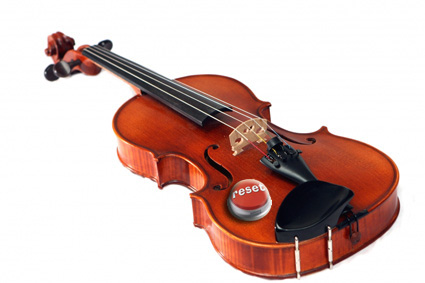True Stories. I Changed the Names.
By all measures, young Corey was thriving in the studio. He clearly made superior progress and demonstrated that the work was important and fulfilling. Yet, his parents were too busy to attend Corey’s end of the year recital. Even worse, they couldn’t even find him a ride to the event. The second recital in a row he missed. It was heartbreaking to see Corey apologize for his parents who were busy “doing something.”
Then there was 10 year old Mark, whose innate musicality was perhaps the most striking of any student I’ve ever encountered. Even though he was “borderline” autistic. This, according to his enthusiastic parents, who eventually became too busy with their dual careers to help him through the barriers he encountered during his practice.
When Mark stopped making progress on violin, his parents’ response was to add piano lessons to his already crowded daily regime, in the hope he could excel at a quicker pace on the keyboard. When younger violinists surpassed Mark’s skill level, his parents pulled him out of violin altogether. I can’t imagine how that made him feel, though after years together, I felt as if my own child had been wrenched from me.
Too Much, Baby!
I can’t count the number of students taking lessons who suffer from sheer exhaustion and sleep deprivation. Seriously. As if the real value of their lives will only be determined by the number of trophies, certificates and AP classes they amass before the age of 18.
All of which leads me to believe that Corey and Mark are the real adults in the room. They are doing the work for its own sake, and to the best of their ability. They are producing meaningful results. Even under next to impossible circumstances.
On the Flip Side of the Coin
As a teacher, I truly appreciate the parents that get it right, the parents that take responsibility for providing the right balance between challenge and support. The parents that take a real interest in their kids’ work, and provide appropriate praise and limits.
While most parents acknowledge that an 5 to 12 year old music student will need help and guidance with her practice, only a minority of those parents seem to consistently follow through when push comes to shove.
Certainly, the study of music provides a pathway to personal growth. Surprisingly, this can be equally true for the student and his parents.
Talent is the Least of It
For the parents that do follow through: I love and appreciate you! But don’t expect the rest of the world to acknowledge your work. Most people think you’re just lucky to have super “talented” children.
If there’s any one talent to be valued above all others in a musically aspiring family, perhaps it is a talent for parenting. It’s the knack to provide nurture and challenge in a perfect balance.
Six Laws and the Ultimate Test: Music
Certainly, the study of music provides a pathway to personal growth. Surprisingly, this can be equally true for kids and their parents. For the student, music is a long term project sustained by motivation, perspiration and an occasional burst of inspiration.
As a parent, your kids’ progress in their musical journey is truly a barometer of your ability to provide a fertile environment for your child’s overall growth. It’s up to you to:
- Provide an age appropriate musical challenge
- Find an experienced, effective teacher
- Understand day to day practice objectives and strategies
- Actively participate in lessons and practice when appropriate
- Set a reasonable limit on academic and extracurricular activities. Put more value on a child’s abilty to imagine, invent and create, all of which happens during free time.
- Provide appropriate praise, support and structure
What Could be More Important?
If you are the “adult in the room,” you take this list seriously. Doing it right requires more patience, effort and thought than simply signing up your kid for everything and obsessively pushing her to the limit. It may not be easy, but it’s definitely possible; I see it every week.
Follow these laws, and I’m guessing the benefits will reach far beyond you kids’ music lessons!
